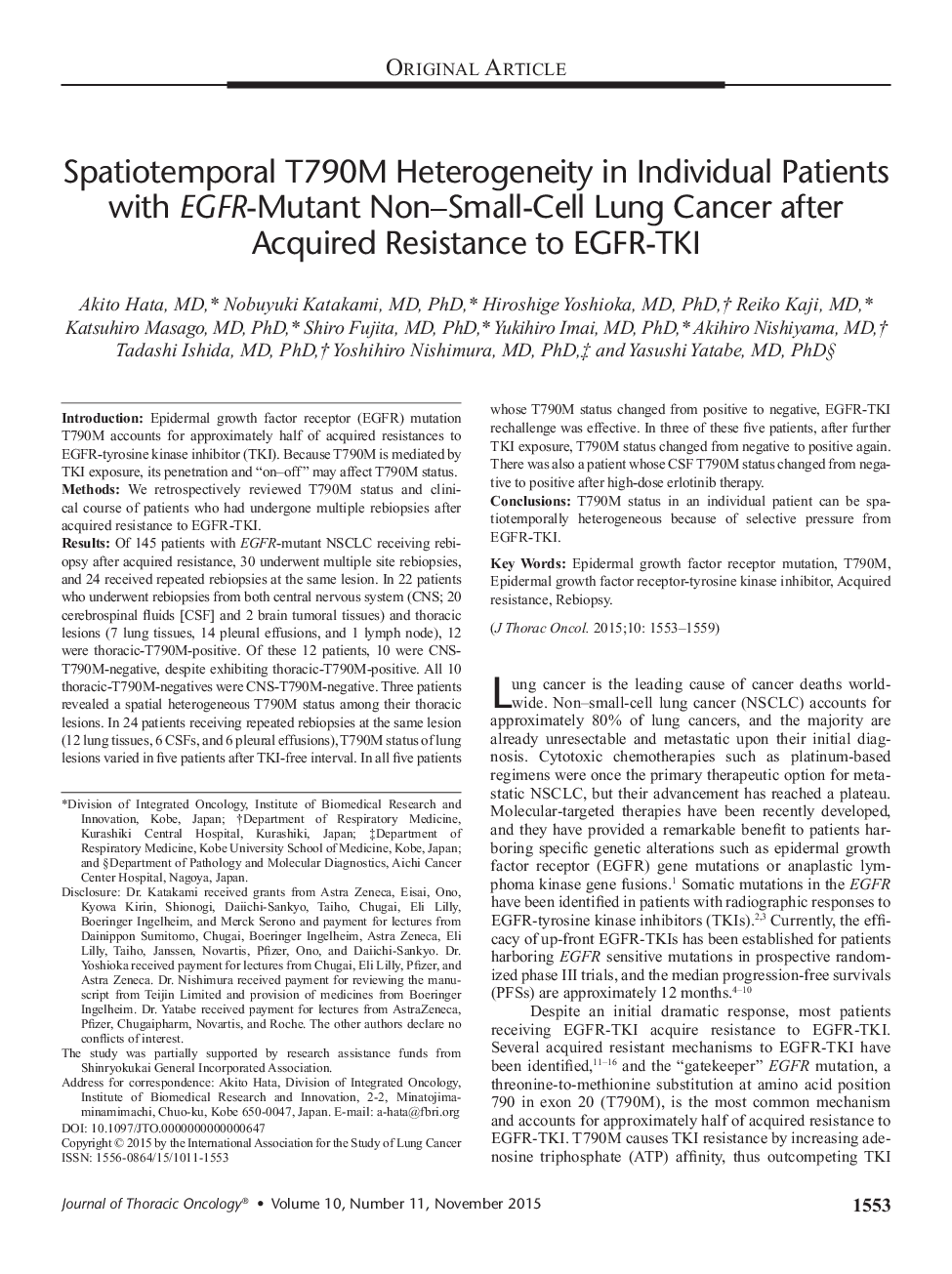| کد مقاله | کد نشریه | سال انتشار | مقاله انگلیسی | نسخه تمام متن |
|---|---|---|---|---|
| 3989527 | 1258680 | 2015 | 7 صفحه PDF | دانلود رایگان |

IntroductionEpidermal growth factor receptor (EGFR) mutation T790M accounts for approximately half of acquired resistances to EGFR-tyrosine kinase inhibitor (TKI). Because T790M is mediated by TKI exposure, its penetration and “on–off” may affect T790M status.MethodsWe retrospectively reviewed T790M status and clinical course of patients who had undergone multiple rebiopsies after acquired resistance to EGFR-TKI.ResultsOf 145 patients with EGFR-mutant NSCLC receiving rebiopsy after acquired resistance, 30 underwent multiple site rebiopsies, and 24 received repeated rebiopsies at the same lesion. In 22 patients who underwent rebiopsies from both central nervous system (CNS; 20 cerebrospinal fluids [CSF] and 2 brain tumoral tissues) and thoracic lesions (7 lung tissues, 14 pleural effusions, and 1 lymph node), 12 were thoracic-T790M-positive. Of these 12 patients, 10 were CNS-T790M-negative, despite exhibiting thoracic-T790M-positive. All 10 thoracic-T790M-negatives were CNS-T790M-negative. Three patients revealed a spatial heterogeneous T790M status among their thoracic lesions. In 24 patients receiving repeated rebiopsies at the same lesion (12 lung tissues, 6 CSFs, and 6 pleural effusions), T790M status of lung lesions varied in five patients after TKI-free interval. In all five patients whose T790M status changed from positive to negative, EGFR-TKI rechallenge was effective. In three of these five patients, after further TKI exposure, T790M status changed from negative to positive again. There was also a patient whose CSF T790M status changed from negative to positive after high-dose erlotinib therapy.ConclusionsT790M status in an individual patient can be spatiotemporally heterogeneous because of selective pressure from EGFR-TKI.
Journal: Journal of Thoracic Oncology - Volume 10, Issue 11, November 2015, Pages 1553–1559